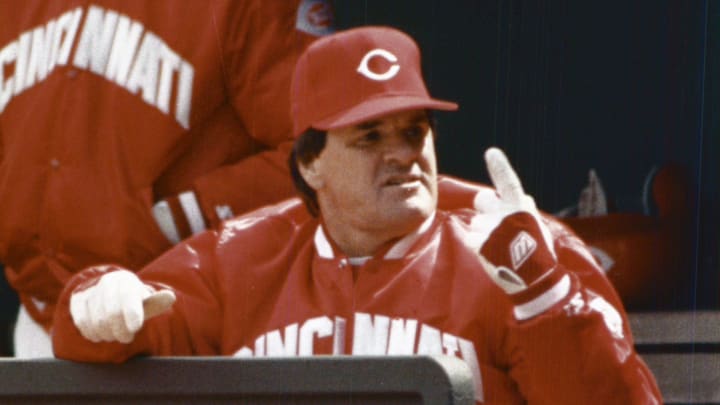The news of Pete Rose's passing at the age of 83 reveals something about Major League Baseball and their position on gambling.
Rose famously was banned for life in 1989 and declared ineligible for the Baseball Hall of Fame after he violated league rules forbidding players from placing wagers on the games including their own team. Rose didn't admit to betting on the game, including on the Cincinnati Reds while as team manager, until 14 years later.
Still there was an army of supporters hellbent on ensuring his plaque mentioning him as the all-time hits leader was featured on the hallowed walls of the Baseball Hall of Fame in Cooperstown. Even as he attempted an image makeover, every commissioner held up then-commissioner Bart Giamatti's official ruling saying Rose would remain a baseball outcast.
Some contended it would have been sacrosanct to go against Giamatti after he died from a heart attack eight days after suspending Rose for life.
Now with the ever present normalization of gambling in all sports, it maybe time to reconsider Rose's legacy. MLB, like other sports leagues, have made gambling a central point of fan engagement and enthusiasm.
For more news and rumors, check out MLB Insider Robert Murray's work onThe Baseball Insiders podcast, subscribe to The Moonshot, our weekly MLB news letter, and join the discord to get the inside scoop between now and the MLB offseason.
MLB's embrace of gambling reframes Pete Rose's crimes
The explosion in the usage of outlets such as Draftkings and ESPN Bet has produced buckets of cash from fans wagering. Prominent athletes have cut spots for these outlets on television including former Red Sox slugger and hall of famer David Ortiz.
All this wouldn't have happened had it not been for the historic Supreme Court ruling in 2018 which allowed for the legalization of sports gambling in 38 states including the District of Columbia.
Meanwhile, Rose had the dark cloud of his own actions hang over him for the rest of his life thanks in part to MLB.
Yes he lied about it for years and his denial ended up hurting him more, but others have cheated the game by other means (streoid use, Gaylord Perry admitting to throwing an illegal pitch called the "spitball," bending the rules of play, etc.). Others have even engaged in criminal activity off the field and can be featured prominently in Cooperstown.
Perhaps it is too late to alter the ruling now that Rose is gone. But it probably isn't too late to at the very least reconsider the larger society's view of him in light of a widespread embrace of the very thing he was ostracized for.
In their official statement, MLB said:
"Major League Baseball extends its deepest condolences to Pete Rose's family, his friends across the game, and the fans of his hometown of Cincinnati, Philadelphia and beyond who admired his greatness, grit and determination on the field of play. May he rest in peace."
There is no question Pete Rose leaves behind a star crossed legacy, one of his own doing for certain. At the same token, MLB could at the very least look into how to contextualize Rose and his misdeeds in a responsible manner considering their own reversal on gambling.
Acknowleding their own change of heart from a punitive to flexible is a good start.
